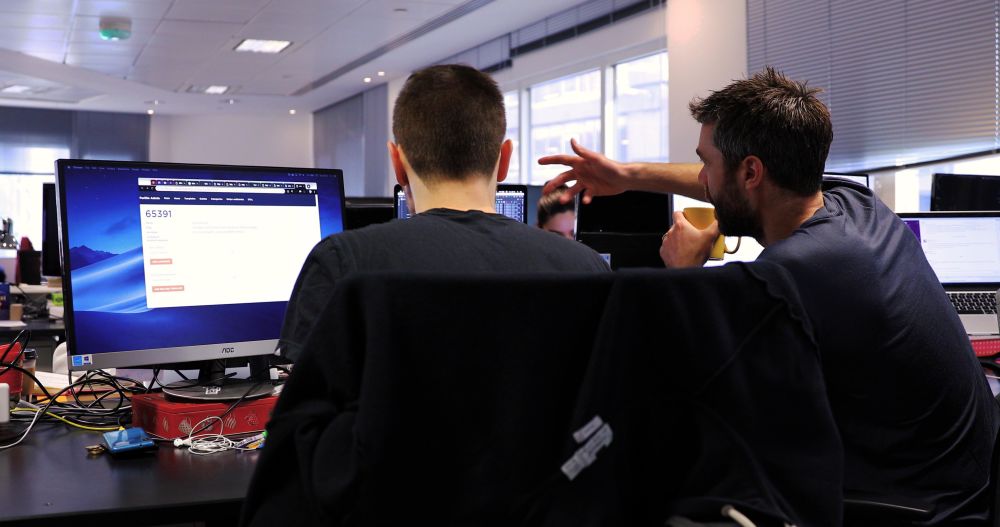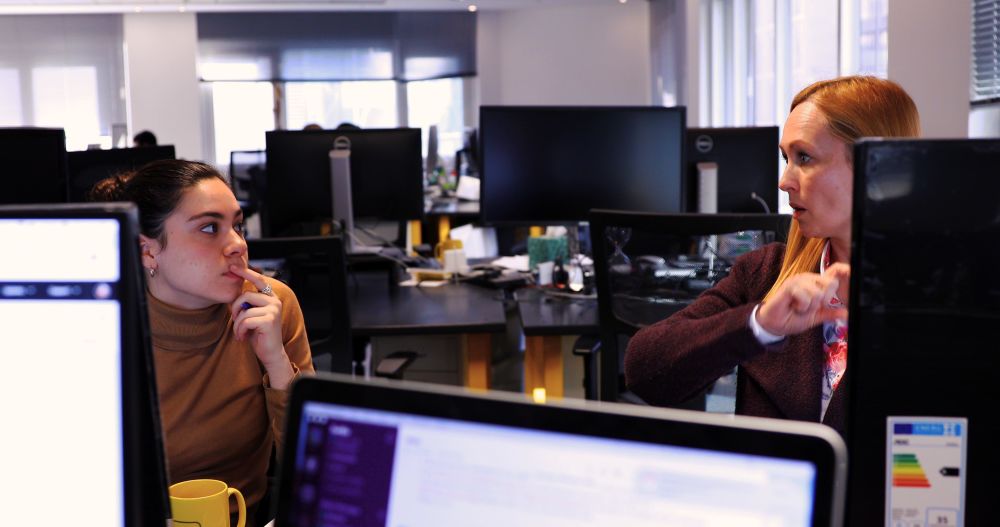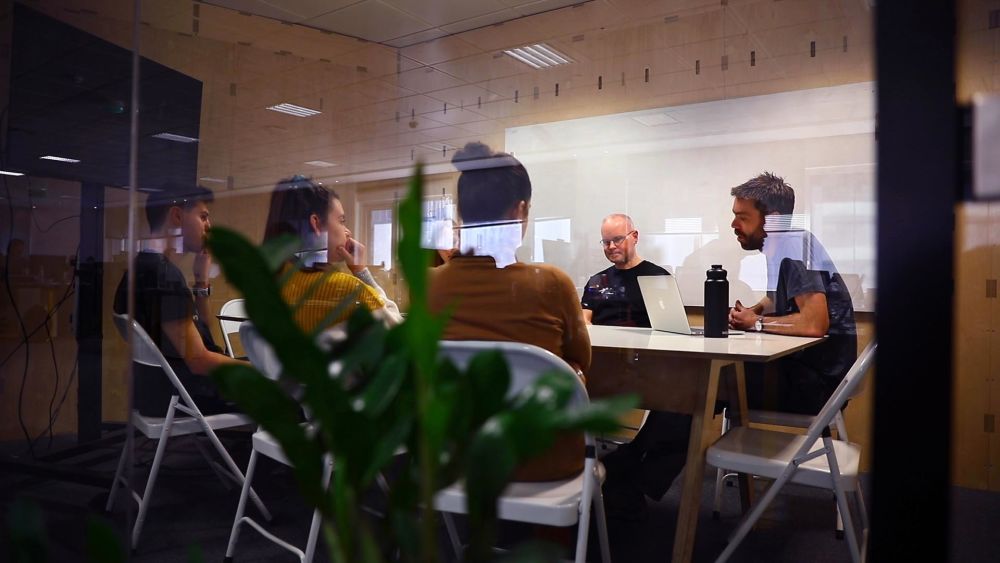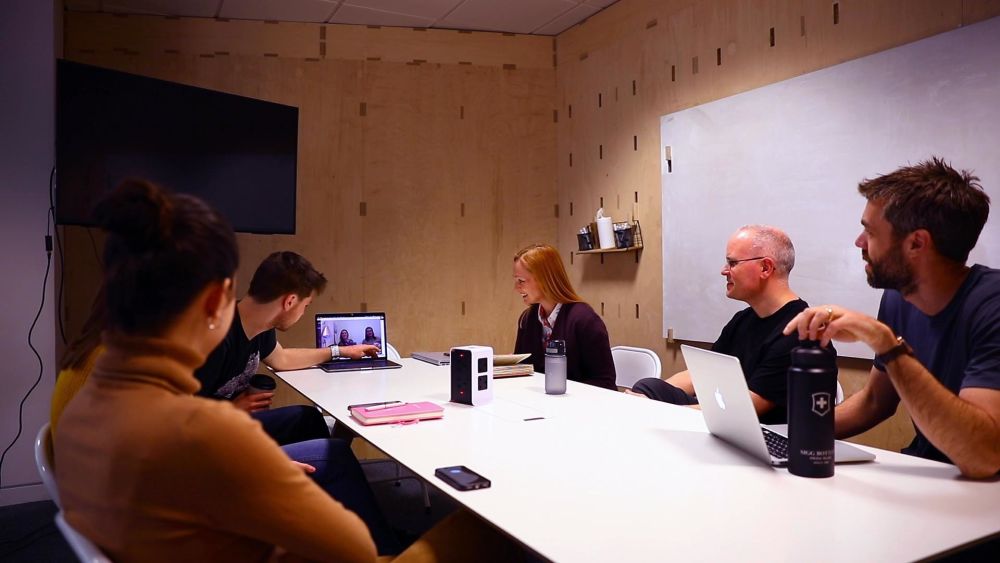Founder success stories: Farillio

Starting your own business is not just about having a great idea - it’s dealing with and solving all the issues that come along with it. It's not always that an aspiring entrepreneur has it all figured out, which is why a lot of them tend to give up on the idea altogether.
However, the ones who are more determined, find that there are plenty of ways around it - it’s all about surrounding yourself with the right people and using the right tools that help you along the way. Farillio is a great example of both: firstly, it’s an online legal platform that provides all-things-law for small businesses in a no-nonsense manner. Secondly, Farillio’s founder, Merlie Calvert, is a great example of an entrepreneur who went through that journey and came out the other side better than ever. Below, she shares all the ins and outs of her entrepreneurial journey and how to always see the light at the end of the tunnel.
About your business

What’s your ‘Elevator pitch’?
We give you a legal account that gives you all the solutions, in the right steps, in the right context for you. And, it's at your fingertips. You pay on a monthly subscription basis. You've got access to everything that you need to run a small business, with the templates and connection to experts (if you want them) in a really user-friendly environment.
And where did the inspiration for your business come from?
Oh my goodness… This is a 20-years-in-the-making obsession. I think I’ve passed the stage of passion long ago. I was with the music industry at the time that Napster emerged, which was absolutely amazing from a consumer’s point of view. It was anarchic, it was pre-social media.
At some point, I had a very drunken conversation with somebody I was working with at the time, and said to him: “Imagine if you could stream law as you can suddenly stream music!” and he laughed his head off and pushed me off my chest…It was one of those conversations that have haunted me through nearly two decades.
Who are the founders?
I started on my own as a sole founder and I’ll be honest - there have been days where I really would have liked a co-founder, a sounding board or someone who had a different set of skills from me. Someone, who could really support the idea and drive it further.
You have so many moments of self-doubt, that having someone else go through it with you is often quite reassuring - you probably reach those moments of self-doubt at different times! However, I had really good people around me. so. in many ways. I had effectively the equivalent of co-founders who came and went at different stages, having provided what I needed at the time.

What’s the origin of the name?
One of the reasons why Farillio started and the reason it's called “Farillio” is… ’Farill’ means brave, and it is a word that for me embodies that massive injection of courage that you need to start, and then, to keep going.
What was your ‘lightbulb’ moment when you realised you could make this a business?
I got a break - I was recruited by an insurance business to create a prototype of what Farillio, essentially, has now become. It worked and it gave me the confidence to branch out and do it for a much bigger audience, on a much more sophisticated basis.
I've spent a lot of my career in large business and I knew what I wanted, both as a client of law firms, but also as a lawyer myself. I was lucky to have sat on both sides of the fence and what I noticed was that large clients and teams in big corporates had really good legal support. If you had a question, you could phone someone up to get a really quick answer.
When you look at small businesses and the circumstances they face, they don't have any of that, and yet, in many ways, they have exactly the same need for legal support, if not more, because they can't afford to make a mistake.
You look at all these amazing people with terrific ideas, who actually either give up because it's too hard, or they can't work it out, or they never start, because they're not brave enough (like me, for a very long time in the first place!). And the more I watched what was happening, the more it became obvious that there needed to be a really good solution.

What customer problems are you solving?
The advantages of Farillio really are that we pull it all together so that you don't suddenly feel like you are second-guessing a multitude of experts. Nobody starts a business to become an expert in bookkeeping, insurance, tax and all the things that you suddenly have to be an expert in as a founder.
What makes you different in the market?
We all want to create and grow what we set out, and it's that passion, it's the idea, it's that product or that service, that has been the obsession for however many years. You don't want to go to sleep at night worrying about understanding bookkeeping, or about how to explain your CAGR and all of these things to the investors. God, it's horrific, it’s like torture.
So the difference for us is to strip as much of that torture away, as we possibly can and demystify things. What Farillio aims to do is to recognise that you want to reach an outcome and it aims to give you a recipe towards achieving that outcome. We give you your ingredients - all the things you'll need to help you bake that outcome, meanwhile recognising you as a business and talking to you in your language.
What's been your greatest success to date?
For me, success is a really difficult concept to explain. One of the things that we don't do enough as people starting a business, is to celebrate the good milestones, but also sit back and reflect on what success means.
You are often only as good as what you've last achieved because that's what people remember first and most. Success is all relative - it's keeping going, it's having a great story, it's having the courage to do this and to still be here eighteen months later. For us, it’s to be selling, growing and attracting amazing people, who are an absolute privilege to work with.
Startup Journey

What made you brave enough to start your own business?
In the end, it was a couple of people who I had been speaking to who were saying to me, “You know this, you have such passion for this, you're doing a great job, but you're working for somebody else in very constrained boundaries? With all these ideas you have for this project you’re actually going to be able to do this!”
I wanted to be able to change the world for small businesses and it was other people nagging me that pushed me to the fundamental question ”If not now, then when?” I thought, if I don't do it now, I'm never going to get less obsessed, but there might be fewer opportunities. It was thinking about how I felt about the answer to those questions - would I be happy if I wake up one morning and somebody else had done it? No. [She laughs]
What advice would you give to a startup entrepreneur taking their first steps?
I think the best advice I could ever give to you to anyone thinking of starting a business, is - build a really good network of people around you.
There are so many challenges that you can plan as much as you try for, and you can take a lot of good advice, but you still discover lots of things that are just unexpected. The only way I can describe founding a business is being suddenly in air traffic control: you suddenly find yourself having a wonderful idea that you're very passionate about, but needing to be an expert in lots of other things that, actually, have nothing to do with that idea or passion.
In order to make it work, there are two skill sets that entrepreneurs need: it's the imagination - it's the power to envisage a future that is different, and better, and great for the audience that you want to impress; the second skill set is being able to persuade others to do it with you. If you can do those two things, then the challenges don't fall away, but they get a lot less daunting and easier to overcome.
So, Gosh, be brave, because you'll actually find out on the journey that you're stronger and braver than you probably feel you are right now, If you
are really passionate about an idea, then go explore what you can do with it. You have got to be really passionate about it. you've got to be really committed. If you aren't, there'll be lots of things along the way that will derail you and really challenge your commitment.

What’s been your toughest moment? And what are the key lessons you took away from the situation?
There are loads of moments that make you think “Am I really good enough to do that? Should I really be doing this?”.
People have an unhealthy romantic view about what it takes to start a business, and the stark reality is - there are days where you really don't feel the love for what you've done. Suddenly, going back to being an employee somewhere with all the benefits and the security is, you know, very enticing and there are lots of people who fall out of entrepreneurship. The grass on the other side does look greener all of a sudden, so they give up and follow that route.
You just have to go into it eyes wide open. If you've got the right people around you and you've got a killer idea, go do it. The market needs killer ideas (definitely, the UK is going to need really good killer ideas). It’s a challenge - don't believe the romanticism - go in with the right backing and the right understanding, but go do it!
Did you bootstrap the business or have you raised external funds?
I bootstrapped for the first six to nine months with my own money: my savings, my pension, and everything that was available to claw in - so, big gamble! And, I think, a lot of investors expect you to have done that anyway. I knew right from the outset that I was going to have to raise money, and I knew that I was going to have to present a proposal that would be really credible. It's hard enough to raise money anyway, but investors do respect a founder who's a 100% committed and has taken a lot of that risk in the early days.

What do you believe are common mistakes that founders make?
Two of the most common mistakes that stick in my mind... The first comes
down to not knowing enough about bookkeeping - if you don't know enough about what's coming in/what's going out, then you get a very warped feeling for how well you're doing and that's when you start to carry a lot of risks. The second area where founders go wrong is the legal stuff. It's just not having robust enough foundations when you start to grow and engage other people.
Every founder of a business asks themselves the same questions: “Do I have a right to be here? Can I really do this? Are people going to laugh at me? Am I going to wake up tomorrow and find somebody's done something better? Should I really do something that's a big risk?”. And even when you're standing on the cliff edge and you're asking yourself those questions, it's not till you've jumped that you realise just how big
that jump is. And you find out what you're made of.
There will be days when you wake up and you just don't know any of the answers, but there will be other days, where you just nail it and you’ll think, ”This is why I started!”.
About your team

Tell us about your team
The team is ten permanent people full-time today. We've been really lucky - we almost found each other, and I'm a big believer that good people find other good people. If you bring in really great people who feel the passion for the product at the beginning, they tend to attract other good people and that's really what's happened to us.
How can you describe your team culture?
The team culture is one of “Get on and do it”. It has four values: empowerment, upfront and personal, togetherness and being tomorrow-focused. They mean different things, obviously, but the people we bring on board tend to fulfil and embody those values.
If I look at the team, it's incredibly diverse: we are such an eclectic set of personalities, but the one thing that we all have in common is that no-nonsense feeling of “This is the job, this needs to be done, and I'll roll up my sleeves and make it happen”.

How do you keep your team motivated and the team spirit on the high?
It’s an ongoing challenge, and the bigger you get, the harder that is, as a founder, to really make sure that you've got a handle on the whole time. Again, I think, good people make a good environment, and one of the
things that have massively impressed me, have been other people in the team taking on other aspects of what I originally would have done.
Keeping the open dialogue going is the best thing that you can do when it comes to motivating people, but also taking the temperature of how people are feeling and spotting the frustrations. Sometimes, you can't avoid them, and when you can't, you have to have those honest conversations.
I genuinely think that if you've got good people surrounding you, they'll
be as motivated to ensure the people that they work with (as well as
themselves), continue to feel the love, the passion and the value of what they do.
About you

How do you relax outside of work?
What keeps me sane is my children (who are totally insane, and actually, most of my family are insane), but it’s about being completely removed from the environment where I have any degree of control. They control everything. they tell me exactly what they think of me. That is the best counterbalance of all.
I try really hard to make my time with the kids, particularly, as sacrosanct as possible - leaving the tech at the other end of the house, knowing that it probably is buzzing, but ignoring it, and ensuring I’m in the moment with the people that matter.
But, you know, for the first few years of starting a business you just have to accept that the balance is going to be an unattainable goal that you hit occasionally, but the rest of the time you just can't beat yourself up for.
What’s your favourite business book & why?
It's a book by a wonderful wonderful lady and a good friend of mine, Penny Power. She's written a book called ”Business Is Personal”. She is utterly incredible. her entire journey as an entrepreneur is really inspiring: she has gone from real highs of having created a business worth £22 million at peak, to rock bottom, when everything crashed for reasons completely outside of her control. She built up that entire journey again, and the values, people and mental strength and all of the things that she has explored personally, are woven throughout this book.
I had the massive privilege of seeing it in the draft last summer, and it was one of those books where I spent the whole week on the beach, saying
to the children “Just just five more minutes!”. It speaks to the heart and soul of most founders, it's very raw, very gritty, and it's very honest, but it's also full of tips, ideas and solutions that she and lots of founders like her have found, to ground you as an entrepreneur, remind you what's important. It’s probably one of the most inspiring books I've read. but she's also one of the most inspiring people I've met, too.
Related stories
This content has been created for general information purposes and should not be taken as formal advice. Read our full disclaimer.



